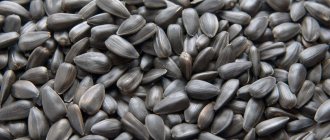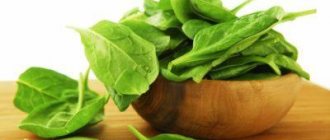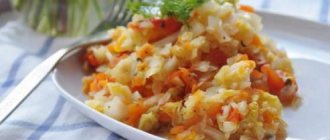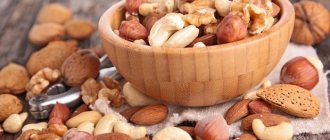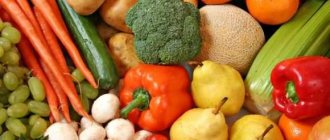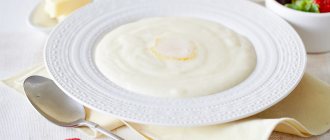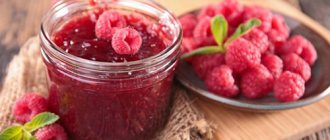The nutrition of a nursing mother should be rational and balanced. After all, she needs to receive all the necessary nutrients, vitamins and microelements. Then her body will successfully recover and lactation will be maintained. And breast milk will be the healthiest food for a baby. But a mother cannot always eat any foods, even those that fall into the category of proper nutrition. Allergic reactions in newborns and older children are by no means uncommon today. And they also experience indigestion and intestinal upset. Therefore, a woman is forced to limit her diet, stick to a diet, introduce new foods gradually and very carefully, carefully monitoring the child’s reaction to each of them separately.
Is it possible to puree while breastfeeding? It is known that pureed food is easily digestible. Modern pediatricians recommend giving puree to a child from 6 months. Previously, it was believed that he was ready to eat such food from 3-4 months. But this was due to the fact that artificial nutrition for babies was poor, its vitamin and mineral composition was unbalanced. Therefore, the baby received nutrients from purees from a very early age.
Today, breastfeeding is supported throughout the world. A baby who eats mother's milk does not need any additional nutrition for at least six months. And for formula-fed babies today, formulas are produced with a composition that is as close as possible to the composition of breast milk. Therefore, they do not need to be supplemented with anything until they are 6 months old.
Chemical composition and calorie content of potatoes
Probably everyone knows that potatoes contain starch. However, this vegetable is also a source of protein, and it is one of the most complete in comparison with other vegetable ones.
Potato protein has high biological activity because it contains quite a lot of easily digestible amino acids that are important for metabolism. It has high nutritional value and is easily absorbed by the human body.
Potatoes are a source of complete vegetable protein.
In addition, the vegetable is rich in vitamins (A, group B, C, PP) and includes a whole range of useful microelements. These are potassium and magnesium, iron and calcium, zinc and bromine, phosphorus and selenium. Moreover, just like protein, they have an easily digestible form.
The calorie content of potatoes is quite high when compared with other vegetables - 100 g contains 73–83 kcal.
Potatoes are one of the most high-calorie vegetables
Interestingly, potatoes have not always been such a popular dish in our country. People's strong love for this product grew over time - over the course of 200 years. Tsar Alexei Mikhailovich (second half of the 17th century) called this vegetable the “devil’s apple.” And in other countries, starchy tubers did not immediately gain recognition. For example, the French, a very scrupulous nation when it comes to cooking, considered this food coarse, unpretentious and poisonous.
Potatoes during breastfeeding: benefits and potential harm
Thanks to its composition, potatoes can bring undeniable benefits to the human body:
- The starch contained in the vegetable has an anti-sclerotic effect, helps reduce cholesterol in the blood, and improves liver function.
- Potassium, which is very abundant in tubers, maintains water-salt balance and removes excess liquid.
- Vitamin C makes the walls of blood vessels stronger and helps the body resist infections. This is very important, because people eat potatoes much more often than lemon and black currants (leaders in ascorbic acid content).
- Plant fibers contribute to the proper functioning of the stomach and normalize its acidity.
- This is a hearty and nutritious product that gives you a feeling of fullness for a long time. If potatoes are cooked correctly, then, despite their calorie content, they do not contribute to excess weight gain.
- Carbohydrates contained in vegetables replenish energy reserves in the body and stimulate brain function.
- Due to the antioxidant content, potatoes help remove toxins from the body and reduce the risk of cancer and diabetes.
- The minerals in the product strengthen bone tissue, improve the condition of joints, cartilage, ligaments, and make connective tissue more elastic.
- Potatoes stimulate metabolic processes in the body, promote normal functioning of the nervous system, and have a beneficial effect on the condition of the skin, hair and nails.
- The vegetable is widely used in folk medicine for the treatment of colds and coughs (inhalation), wound healing (freshly squeezed juice).
Potato fibers have a beneficial effect on digestion and normalize stomach acidity.
All these valuable properties of potatoes make it very useful for breastfeeding. However, this beloved vegetable can in some cases cause harm.
- Under the influence of the sun's rays, solanine (an alkaloid) accumulates in the tubers, which is toxic to humans. Such potatoes usually acquire a greenish color and germinate - this happens in the spring, when the vegetable has been stored for a long time. Of course, one such potato eaten will not cause any significant harm, but if a toxic substance enters the body in large quantities, then poisoning is quite possible. Moreover, if we are talking about a nursing mother: through breast milk, she will transfer all the components of food to the baby.
- The vegetable contains quite a lot of carbohydrates, so there is a possibility that it can cause intestinal colic in the baby.
- A high starch content is fraught with constipation in the mother or child, especially if there is a tendency to this.
- Although potatoes are not a strong allergen, there is still a risk of a negative reaction in the baby. It can be caused by starch or protein contained in the product. An allergy to starch is due to the fact that the developing digestive system is not yet able to fully process complex carbohydrates. This most often occurs if the mother eats too many potatoes. Cross-allergy is more problematic: if a person reacts poorly to alder, birch or apple pollen, then it is quite possible that this also extends to the nightshade family, which includes potatoes, as well as eggplant, tomatoes and bell peppers. In this case, you will have to stop eating the vegetable. But fortunately, such reactions occur extremely rarely.
- If a woman is overweight (which is common after childbirth), then she should be aware of the high calorie content of potatoes. Too large portions will only make the problem worse.
Sometimes potatoes cause an allergic reaction in a baby
Video: the benefits and harms of root vegetables are discussed in Elena Malysheva’s TV program “Live Healthy!”
Lifestyle of a breastfeeding mom
An important requirement for a nursing mother is a normal appetite, this is necessary for the digestive system to function normally.
This will help the body recover faster after the birth of a child and produce high-quality milk in the required quantity. With sluggish digestion, a deterioration in appetite will affect milk production and her general well-being, and this is unacceptable if long and productive breastfeeding is planned. A nursing mother should try to lead a calm, measured and healthy lifestyle as much as possible. This, however, does not mean that she should move little - walking with a stroller in the clean air will be very useful for both her and the baby. You should not work until you completely lose strength; try to rest during the day and at night as needed.
Nutrition during breastfeeding should be easily digestible, have nutritional properties and be distributed at certain intervals, at least 4 times a day. When consuming a product, it is necessary to observe the child’s reaction to it, and completely exclude it from food if it causes a negative reaction in the child’s body.
Rules for use during lactation
To minimize the occurrence of negative consequences, a nursing mother must correctly introduce potatoes into the diet.
In the first month after giving birth (even in the first week), you can try a small amount of soft vegetable puree - about two tablespoons. But you need to cook it not with milk, but with potato broth or water. The tasting should be carried out in the morning, and then monitor the child’s reaction for two days, first of all, paying attention to the state of his digestion (the presence of colic, the nature of the stool) and the absence of allergies. If everything is in order, then next time the woman can increase the portion of the dish.
The first portion of puree after childbirth should not exceed two tablespoons
In the first week after giving birth, you can also consume lean potato soup. After the baby is a month old, the mother can try mashed potatoes with milk (unless, of course, it causes an allergy in the baby), as well as baked and stewed potatoes.
For the first three months, there is no need to combine potatoes with meat products, since such dishes are much less digestible. In addition, this food is too high in calories and contributes to weight gain.
In the first months after childbirth, potatoes should not be combined with meat: such food is difficult for the stomach to digest, and besides, it contributes to excess weight gain
Potatoes should be consumed no more than two to three times a week. In this case, the daily norm should not exceed 200 grams.
To avoid toxic solanine from entering the body, preference should be given to young vegetables; moreover, they contain more vitamin C (its amount decreases during storage). You can eat it with the peel, as it contains a lot of vitamins. And the most harmful potatoes, accordingly, are those that are sold in late spring and early summer: they already have practically no useful substances. If the tubers have acquired a greenish tint or sprouts, spots, or signs of rotting have appeared, then it is better not to eat them.
By the way, pediatricians advise nursing mothers to eat yellow potato tubers, because they are more beneficial than white ones. The yellow tint is a sign of increased beta-carotene content, which helps maintain good vision and youthful skin.
According to doctors, yellow tubers are more useful than white ones.
Before cooking, it is better to soak the vegetable in cold water: this will reduce the starch content in it, remove nitrates, which minimizes the risk of allergies in the child.
Powdered purees are completely unacceptable for a nursing mother (they are usually served in fast food cafes). Of course, such a dish is very easy to prepare, but it contains many chemical components that will inevitably harm the child’s health.
During lactation, it is unacceptable to combine potatoes with mayonnaise, ketchup, various sauces, or combine the product with mushrooms.
Video: how to choose quality potatoes
In what form is it better for a nursing mother to eat potatoes?
As you know, there are many ways to prepare potatoes. However, not all of them are equally beneficial for a nursing woman and her child.
Table: benefits and harms of different cooking methods
| Method of preparing potatoes | Benefits and harms during lactation |
| Cooking | It is from boiled potatoes that mashed potatoes are prepared. During the cooking process, part of the starch is removed from the vegetable (this is very important if it is poorly tolerated), but almost all useful components remain, including antioxidants. It is good to eat boiled potatoes in their jackets: in this form they will bring more benefits to the body. A nursing mother should not prepare puree with cream, add a lot of butter or fried onions to it. Of course, it’s delicious, but excess fat will have a bad effect on the baby’s digestion. |
| Extinguishing | The vegetable is cooked with a small addition of water. With this method of heat treatment, all starch remains in the product. During the first months, a nursing mother does not need to eat stewed potatoes with meat; as a last resort (if this is your favorite dish), you should choose low-fat dietary varieties - chicken breast, turkey, beef (store-bought stew is unacceptable). The taste of a purely vegetable dish will be improved by adding carrots and onions (you just don’t need to do this in the first month). |
| Steaming | This dietary method is very popular today and is recommended for nursing mothers. All useful substances remain in the product, but there is one drawback - such potatoes still have a high starch content (the solution is to pre-soak the tubers). |
| Baking | According to nutritionists, baked potatoes contain a lot of potassium, which is good for the heart. You can cook both peeled vegetables and tubers in their uniforms in this way. |
| Roasting | This dish is very high in calories - about 195 kcal per 100 grams: this will inevitably affect the female figure. But the main disadvantage of the product is the use of a large amount of heated vegetable oil when cooking. This is too heavy for a baby to digest (and an adult too). During prolonged heating, any oil forms free radicals, toxins and carcinogens: this provokes various pathologies in the body. For a baby, eating such food by the mother is fraught with bloating, upset stool, and dermatitis. It is better for a woman not to eat fried potatoes at all during lactation (this also applies to fried potato pancakes). If you really want to enjoy your favorite dish, you should do this extremely rarely and not earlier than the baby is six months old. |
| Deep frying | French fries are cooked in very hot oil, so they have the same properties as fried potatoes. This industrially produced product is especially harmful, since the oil is used repeatedly: the content of carcinogens in it is simply enormous. The most reasonable decision is to give up this dish forever, and not just for the period of lactation. The same applies to potato chips, which are simply saturated with flavors, flavor enhancers and other chemical components. |
Photo gallery: different methods of heat treatment of the product
When frying potatoes, heated vegetable oil breaks down into carcinogens, toxins and free radicals, which has a detrimental effect on the human body.
When baked, maximum potassium remains in potatoes, especially if unpeeled tubers are used
Steamed potatoes are a healthy dietary dish for a nursing mother, the main thing is to soak the tubers first
During the cooking process, the starch content in potatoes decreases, but many valuable substances remain
Carrots and onions will make the dish more tasty and aromatic
French fries, beloved by many, are cooked in a large amount of vegetable oil, and manufacturers use it many times
Interestingly, depending on the cooking method, the calorie content of potatoes can vary greatly:
- Boiled - on average 80 kcal.
- Mashed potatoes with milk or butter - 100 kcal.
- Stewed - 80 kcal.
- Baked - 85 kcal.
- Fried - 195 kcal.
- Fries - 400 kcal.
- Chips - 500 kcal.
Simple recipes for proper cooking
Boiled potatoes
The simplest dish is boiled potatoes. It should not be cooked for long, otherwise all the vitamins will evaporate. Cooking time depends on the variety, ranging from 15 to 30 minutes. Boiled potatoes are an excellent side dish for fresh vegetables, fish, and meat. Adherents of separate nutrition do not recommend mixing potatoes with fish or meat, as the digestibility of the products is lower. When breastfeeding, you should listen to this opinion and observe the baby’s reaction to the dishes. If there are no changes in his behavior and well-being, everything is fine.
Advice! It is worth remembering that a baby’s body is sensitive to everything; a negative reaction can be to anything. Therefore, it is recommended to keep a maternal food diary, which will make it easier to understand the cause of anxiety.
Mashed potatoes
Mashed potatoes are a favorite dish for many. You can make it even more useful by combining it with zucchini. When cooking, keep in mind that zucchini cooks faster than potatoes and needs to be added later. For dressing before crushing, you can only use salt and vegetable oil; it is permissible to add stewed onions and carrots, and an egg. Milk from a nursing mother is undesirable.
Mashed potatoes in combination with other vegetables are a healthy and tasty product. But you should use it no more than once a day. A high-carbohydrate product with a high glycemic index if consumed uncontrolled will do more harm than good. All foods should be consumed in moderation.
Advice! The presence of bright colors in the design of a dish improves mood, which is very important for a nursing mother.
Stewed potatoes
The most delicious and nutritious is stewed potatoes with meat and vegetables. First, the meat is stewed until it becomes soft, then vegetables are added. In addition to potatoes, it can be anything: cauliflower, zucchini, green peas, beans.
Advice! Only vegetables that have been tested for the baby’s reaction should be added to the dish. The introduction of foods into the diet should be gradual.
You should choose dietary, lean meat for stewing: chicken, turkey, veal, lean pork. The baby's body is not able to digest the mother's fatty milk; it will be tormented by pain and discomfort in the abdomen.
Baked Potato
Baked potatoes are a dietary product. The preparation is simple, but the taste is excellent. You can make delicious potatoes with spices, lard, and fatty chicken, but nursing mothers cannot do all this. But you can fish. The preparation is as follows: several potatoes are wrapped in foil, placed on a baking sheet and placed in the oven. The fish, rubbed with salt, surrounded with onions and tomatoes, is also wrapped in foil and placed on the same baking sheet a little later. In half an hour or an hour, a delicious dish is ready.
Advice! Fish is a source of essential vitamins and microelements. A nursing mother should not forget about the need to use it.
Potato soup
Potatoes can be eaten in soup. In this case, the soup is prepared without frying and from lean meat. The foods in the soup should be familiar to the child.
Soups with legumes should be introduced into the diet carefully; it is better to limit yourself to a few pods of green beans per day. The best combination of soup with potatoes for a nursing mother is: fish broth with carrots or chicken. For variety or personal preference, you can add rice or pearl barley.
Advice! There are a lot of restrictions in the diet of a nursing mother, but they are all individual. Strict systematization and sequential introduction of products will help cope with the feeding stage with minimal discomfort for mother and baby.
Dishes for nursing mothers
Of course, a menu for a nursing mother should not only be healthy, but also tasty. New interesting dishes added to the diet will certainly cheer up a woman. You can pay attention to the following options.
Potatoes baked with cheese
Ingredients:
- 400 g peeled potatoes.
- 1 large onion.
- 100 g hard cheese.
- Salt to taste.
Preparation:
- Cut the washed potatoes into slices and the onion into half rings.
- Add salt to the potatoes, place them in layers in a baking dish (pour a little water into it first), cover with onions on top and sprinkle everything with grated cheese.
- Cook the dish in the oven at 200 degrees for 40–50 minutes.
Potatoes with cheese are a good combination; the dish turns out aromatic and has a crispy crust.
Boiled potato casserole with cottage cheese
Ingredients:
- 250 g peeled potatoes.
- 75 g low-fat cottage cheese.
- 20 g butter.
- 50 g sour cream.
- Salt to taste.
Preparation:
- Boil the potatoes in salted water until tender, then mash with a fork.
- Wipe the cottage cheese.
- Grease a baking dish with butter, place half of the potato mixture in it, place cottage cheese on top and pour sour cream on top.
- Lay out the same layers again.
- Bake in the oven at 200 degrees for 20 minutes.
